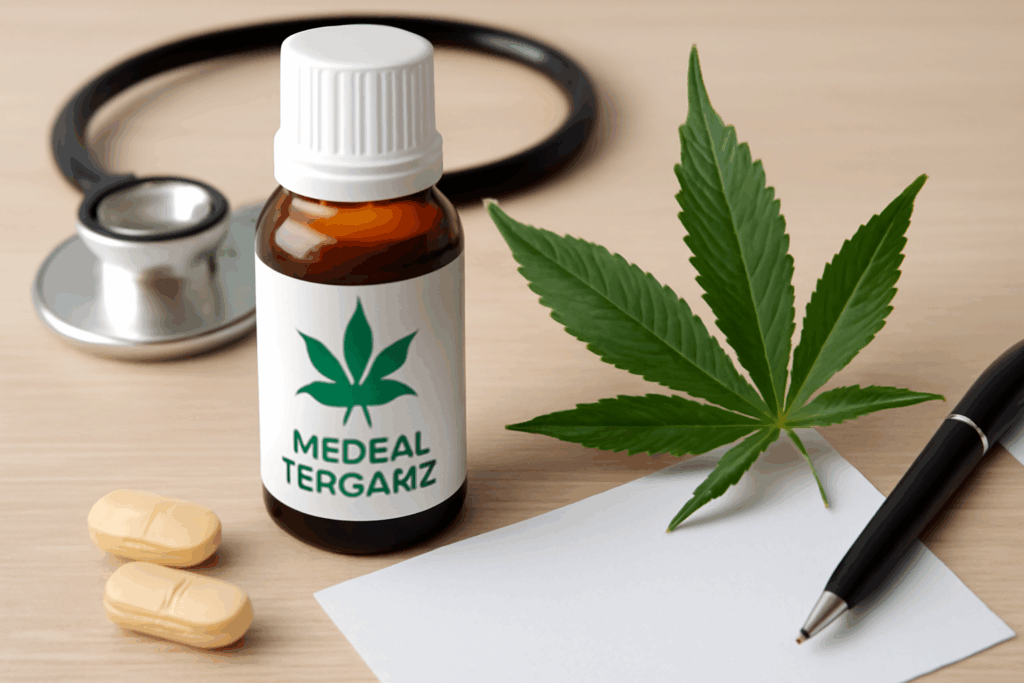Medical cannabis has gained widespread attention in recent years for its potential therapeutic benefits, offering relief for various medical conditions. While many people are familiar with cannabis, they may not fully understand the role of its key compounds—Cannabidiol (CBD) and Tetrahydrocannabinol (THC). Both are found in the cannabis plant, but they have different effects, medical uses, and legal considerations. This article will explore the differences between CBD and THC in medical cannabis, highlighting their medicinal properties, uses, and potential side effects.
Introduction
Medical cannabis refers to the use of the cannabis plant or its compounds to treat medical conditions. It has been shown to be effective in treating chronic pain, anxiety, epilepsy, and more. Among the many compounds found in cannabis, CBD and THC are the most well-known. They both interact with the body’s endocannabinoid system, but in distinct ways.
CBD and THC are both cannabinoids, chemical compounds that affect the body’s cannabinoid receptors. While they share a similar origin, their effects are quite different. Understanding these differences can help patients make informed decisions about using medical cannabis for their health conditions.
Understanding CBD
What is CBD?
Cannabidiol (CBD) is a non-psychoactive compound found in cannabis. Unlike THC, CBD does not produce a “high” or cause any mind-altering effects. CBD is typically derived from hemp, a variety of cannabis that contains low levels of THC.
See more: Trusted Sleep Apnea Testing in Geelong
Medicinal Properties and Health Benefits
CBD has gained popularity in the medical world due to its wide range of potential health benefits. Some of the most well-known benefits include:
- Pain Relief: CBD has been shown to reduce pain and inflammation, making it useful for conditions like arthritis, multiple sclerosis, and chronic pain.
- Anti-inflammatory Effects: CBD can help reduce inflammation in the body, which is beneficial for conditions like autoimmune diseases and joint pain.
- Anxiety Reduction: CBD has anxiolytic (anti-anxiety) properties, which can help reduce symptoms of anxiety and stress, making it a popular choice for patients with anxiety disorders.
- Neuroprotective Benefits: CBD has shown promise in treating neurological conditions like epilepsy. It may reduce the frequency and severity of seizures.
How CBD Works in the Body
CBD works by interacting with the body’s endocannabinoid system (ECS), a complex system of receptors found throughout the body. The ECS plays a vital role in regulating many bodily functions, such as mood, pain, and immune response. CBD binds to these receptors, helping to restore balance and promote overall well-being.
Understanding THC
What is THC?
Tetrahydrocannabinol (THC) is the main psychoactive compound in cannabis. Unlike CBD, THC produces the “high” typically associated with cannabis use. It is primarily found in marijuana, a cannabis plant variety with higher THC levels than hemp.

Psychoactive Effects of THC
When consumed, THC binds to cannabinoid receptors in the brain and nervous system, triggering the release of dopamine. This leads to the feeling of euphoria or the “high” associated with cannabis use. While this effect is recreational for some, it also has medical applications.
Medical Benefits of THC
- Pain Relief: THC is effective at reducing pain, particularly for conditions like cancer, neuropathy, and HIV/AIDS-related pain.
- Appetite Stimulation: THC can stimulate appetite, which is particularly helpful for patients undergoing chemotherapy or suffering from conditions that cause weight loss.
- Nausea Reduction: THC is widely used to reduce nausea and vomiting, especially in patients undergoing cancer treatments like chemotherapy.
- Muscle Relaxation: THC has muscle-relaxing properties that can help with conditions like spasticity in multiple sclerosis or muscle cramps.
Key Differences Between CBD and THC
Although CBD and THC are both cannabinoids, they have distinct differences that impact how they affect the body.
Chemical Structure
CBD and THC have the same chemical formula, but their structures are arranged differently, which leads to different effects on the body. THC has a tetrahydrocannabinol group that allows it to interact directly with cannabinoid receptors in the brain, causing psychoactive effects. On the other hand, CBD does not bind directly to these receptors and therefore does not produce a “high.”
Psychoactive Effects
The key difference between CBD and THC lies in their psychoactive properties. THC is psychoactive and produces the “high” commonly associated with cannabis use, while CBD is non-psychoactive and does not alter the mind. This makes CBD a suitable option for medical use without impairing daily functioning.
Legal and Regulatory Differences
The legal status of CBD and THC varies by location. In many parts of the world, CBD derived from hemp is legal and available for purchase without a prescription, as it contains less than 0.3% THC. However, THC is still illegal in many countries, especially in places where cannabis use remains prohibited. Some regions have legalized THC for medical use, but there are strict regulations governing its use.
Combining CBD and THC
CBD and THC are often used together in medical cannabis products, such as oils, tinctures, and edibles. This combination is believed to enhance the therapeutic effects of both compounds, a phenomenon known as the entourage effect. The entourage effect suggests that cannabinoids work better together than in isolation, leading to improved pain relief, reduced anxiety, and enhanced overall well-being.
Many medical cannabis patients use products with a balanced ratio of CBD to THC to experience the benefits of both compounds without overwhelming psychoactive effects.
Medical Uses and Research
There is a growing body of research and clinical trials investigating the medical uses of CBD and THC. Here are some key areas where these compounds show promise:
- Epilepsy: CBD has been shown to reduce the frequency of seizures in epilepsy patients, especially in children with Dravet syndrome.
- Chronic Pain: Both CBD and THC are commonly used to manage chronic pain, particularly in patients with conditions like arthritis, fibromyalgia, and cancer.
- Mental Health: CBD is increasingly being studied for its potential to treat anxiety, depression, and post-traumatic stress disorder (PTSD).
- Cancer Treatment: THC has shown promise in alleviating symptoms related to cancer treatments, such as pain, nausea, and appetite loss.
Safety and Side Effects
Both CBD and THC are generally considered safe when used appropriately, but they do come with some potential side effects.
- CBD Side Effects: CBD is well-tolerated by most people, but it can cause mild side effects like drowsiness, changes in appetite, and gastrointestinal discomfort. It may also interact with certain medications, particularly those that affect the liver.
- THC Side Effects: THC can cause more significant side effects, including dizziness, dry mouth, increased heart rate, and impaired memory or coordination. In some cases, THC can trigger anxiety or paranoia, especially at higher doses.
It’s important for individuals considering medical cannabis to consult with a healthcare provider to determine the appropriate dosage and form of treatment.
Conclusion
CBD and THC are both powerful compounds in medical cannabis, each offering unique therapeutic benefits. While CBD is non-psychoactive and widely used for pain relief, anxiety reduction, and inflammation control, THC is psychoactive and effective for managing pain, nausea, and stimulating appetite. Both compounds can be used together to enhance their effects, and ongoing research continues to reveal new medical applications. As cannabis laws continue to evolve, it’s important for individuals to stay informed about the legal status and potential benefits of CBD and THC in their region.
If you’re considering medical cannabis treatment, it’s essential to consult with a healthcare provider to understand which option—CBD, THC, or a combination of both—will best suit your needs and medical condition.

